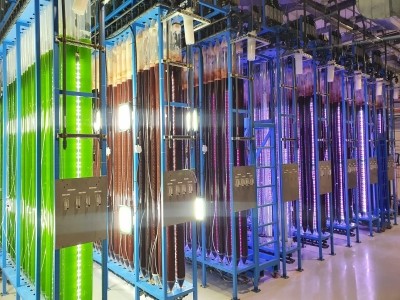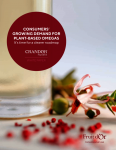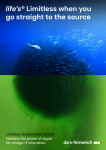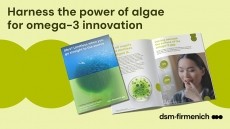Danish start-up secures carbon capture funding for algae omega-3 products

With finance provided by the BioInnovation Institute (BII), Algiecel are looking to build and test a mobile container-based photobioreactor that uses algae to isolate CO2 emissions from industrial processes.
This CO2 will then be turned into the omega-3-rich products for use in the food and feed industry as Algiecel’s CEO Henrik Busch-Larsen comments: “We are very pleased to have been accepted into the Venture Lab programme and to have received funding from BII.
“Having such a well-renowned partner on board is not only beneficial from a financing perspective but is also a seal of approval of the technology and the proposed business model.
“It has been a pleasure working with the BII team, and I would like to thank the team for their support and commitment.”
In explain its approach, the Company uses natural microalgae organisms, and photobioreactor technology that is fitted to standard shipping containers, to offer firms carbon capture as a service.
Algiecel believes it possible to remove millions of tonnes of CO2 annually from industrial production without affecting client income.
Business model
In a statement, the Odense-based firm adds that its business model, “transforms the cost challenge of CO2 removal and potential emission penalties into a profitable business opportunity across the entire value chain through revenue sharing from derivative product sales.”
Algiecel joins Ousia Pharma, Tetrakit Technologies, Nordic Virtual Pastures, Aiomic, Mello, Warburg Oncology and Probmet as the latest participants in its Venture Lab acceleration program for early-stage companies.
Announced last week, the eight ventures align with BII’s focus, developing initiatives across three specialist areas – therapeutics, bioindustrials and health tech.
BII’s 12-month Venture Lab program supports business acceleration, scientific and team development, and provides a risk-free convertible loan of €0.5m+ access to facilities at BII’s Copenhagen ecosystem.
Since its inception in 2018, BII has supported 71 start-ups and projects with €44m in funding.
“Following the launch of our Venture Lab program last year and an initial intake of exciting new companies, BII has continued to receive a stream of promising applications,” says Bobby Soni, Chief Business Officer at BioInnovation Institute.
“We are delighted to announce the next cohort of start-up initiatives accepted onto the program and we look forward to supporting them with the many aspects of development needed to deliver first-in-class science that will positively impact global health and the environment.”
Start-up tech
Formed in 2021, Algiecel’s modular based, closed, tubular photobioreactor uses horizontal pipes divided into nine, separately removable models.
Each pipe is mounted on an aluminium profile which supports the pipes, and the mounted LED display.
By controlling the lighting with the LED tech, the photobioreactor also controls the growth of the algae with minimal risk of contamination.
Algiecel says that the photobioreactor is flexibly applicable on varying grades of CO2 and can host any microalgae species that grows with photosynthesis, thereby transforming light and Co2 into biomass.
“By using small reactor systems with high yields, we can scale individual production sites through the addition of modules rather than increasing the size of batches,” they say.
“We can thus achieve constantly efficient production with increasing scale, as compared to competing solutions. The container-based plug & play structure also means a more flexible capex solution for clients.”















